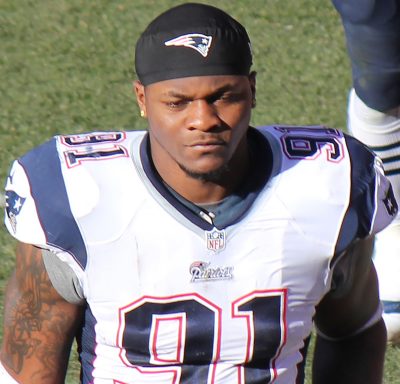
Week 8 of the NFL season has come to a close, and by this point in the season, we’ve seen it all.
We’ve seen the NFC East go from laughable last year to a juggernaut this year. We’ve seen two ties and more missed field goals than anyone can count. We’ve seen the Oakland Raiders finish their first half at 6-2 with a 5-0 road record, the Minnesota Vikings fall from grace and we’ve seen the Dallas Cowboys cut through the power rankings despite losing Tony Romo in the preseason.
Among all these paradigm shifts, though, two things remain completely unchanged: the New England Patriots are still really good, and the Cleveland Browns are still really bad. These two teams crossed paths in the news on Monday afternoon, when the Patriots unexpectedly shipped Pro Bowl linebacker Jamie Collins to the Browns in exchange for a conditional third-round pick in the upcoming NFL Draft.
This trade makes perfect sense from Cleveland’s perspective. The Browns have a surplus of picks as a result of their trade with the Eagles last season that sent North Dakota State University quarterback Carson Wentz to Philly. Why not trade a conditional pick for a young, proven linebacker?
At first glance from the Patriots’ perspective, though, this trade may seem shocking. After all, Collins was one of New England’s most dynamic defensive players. He led the team in tackles last year with 89, and forced a franchise record five fumbles. He was considered by many to be the best overall defensive player on the Patriots, and General Manager Bill Belichick got very little in return for him. When we dive a little deeper, though, it really should not be a surprise.
Collins is in the final year of his rookie contract. While he was arguably the best defensive player on New England, rumor has it Collins requested Von Miller-esque money at the start of the year, knowing that he was due for a new contract.
Not even the reigning Super Bowl MVP deserves Von Miller-esque money. A friend of mine said it best yesterday: “Jamie Collins wanted a Von Miller deal, so Belichick sent him to Cleveland for his career to probably die. He’s sending a message to the rest of the team not to ask for enormous contracts when the Pats are always a favorite to win the Super Bowl.”
Belichick has always run his team as economically as possible. He traded former first-round pick Chandler Jones to the Arizona Cardinals for guard Jonathan Cooper and a second-round pick during this past offseason. Jones’ contract was also set to expire at the end of this season.
The phrase “In Bill We Trust” has resurfaced since the trade went through on Monday afternoon.
While many fans may still be confused by the trade, or not fully understand it, they should have no reason to doubt the mastermind Belichick. He has released or traded some big names during his time in New England, including Ty Law, Willie McGinest, Richard Seymour, Randy Moss, Logan Mankins and Vince Wilfork.
Despite all those key departures, the Patriots are still on the best run of any franchise since the turn of the millennium. They’ve appeared in 10 AFC Championship games since 2000, and won six of them. Of their six Super Bowl appearances, they’ve won four, and it does not seem like they are done just yet.
Their most recent Super Bowl win came in 2015 against the Seattle Seahawks. While the complexion of the team has changed since then, the Patriots lead ESPN’s NFL Power Rankings by a landslide, and seem poised to make another deep run at the playoffs.
The bottom line is this: if the Patriots are unwilling to sign a player to a long-term extension for any reason, they will trade that player for some return before he enters free agency and yields no return. Bill Belichick has run this team like a high-functioning, high-efficiency business for years, stressing the importance of everyone “doing their job.” If a younger linebacker on the Patriots depth chart like Elandon Roberts can produce a similar job for a fraction of the cost, it makes perfect sense that Belichick would trade Collins.



















































































































